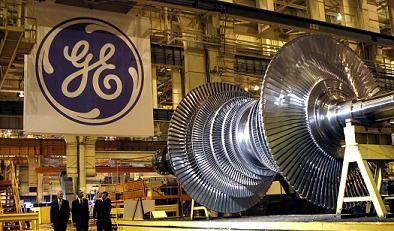GE Taxes Again Under Scrutiny: Only 2.3% Paid Over 10 Years, Group Says

General Electric Co. (NYSE: GE) again stands accused of employing tax-dodging techniques to avoid paying a fair rate of income tax.
In a dispute that crystallizes the politically charged debate over corporate taxes, GE is again the focus of criticism from Citizens for Tax Justice, which says only 2.3 percent of GE's pretax U.S. profits have gone to the federal government since 2002.
A new analysis issued this week by the nonprofit, liberal advocacy group says that based on GE's annual report for 2011 -- filed with the U.S. Securities and Exchange Commission last Friday -- the industrial conglomerate had an effective tax rate of only 11.3 percent. That undercuts company statements that its U.S. tax rate for last year was a considerably higher 25 percent. Whichever is accurate, the figure is far below the official U.S. corporate-tax rate of 35 percent.
The analysis, which compiled GE's profits and tax payments from 2002 to 2011, also concluded that the company has paid about $1.8 billion in federal income taxes on $81.2 billion worth of pretax U.S. profits since 2002, an annual average of 2.3 percent.
I don't think most Americans would consider 11.3 percent, not to mention GE's long-term effective rate of 2.3 percent, to be 'normal,' Bob McIntyre, director of Citizens for Tax Justice, said in a statement. But for GE, taxes are something to be avoided rather than paid.
GE had negative federal income tax for three of the 10 years analyzed in the study. That the company reportedly didn't pay any federal income taxes between 2008 and 2010 was the subject of a wider investigation by Citizens for Tax Justice. According to a report by the group, along with the Institute on Taxation and Economic Policy, GE paid a federal income tax rate of negative 45 percent on more than $10 billion in U.S. profits during that period.
A data analysis by the Center for Responsive Politics found that GE spent more on lobbying -- almost $89 million -- that it did paying federal income taxes in those three years.
The Connecticut-based giant has adamantly insisted that it pays all it owes under the law. After a widely read New York Times article last year reported that GE had claimed a $3.2 billion tax benefit in 2010 while paying no taxes, the company issued a lengthy response, arguing that significant losses at GE Capital during the financial crisis, among other events, was responsible for a tax rate it acknowledged was below historical levels.
Andrew Williams, a spokesman for GE, said in an e-mail that the company's 2011 tax rate in the United States was 25 percent, with a global rate of 29 percent.
Citizens for Tax Justice, he wrote, is an interest group with a clear agenda and the reports they file are biased and inaccurate. The rate is below 35 percent because of lower tax rates on foreign earnings, and tax credits and deductions for investments that support U.S. economic growth and jobs.
However, Citizens for Tax Justice argues that GE's reported figures for 2011 don't reflect what the company actually paid. Rather, it may include deferred taxes that GE can continue to put off by using various tax loopholes. GE denies making use of loopholes or innovative accounting.
Although the nation's current 35 percent corporate tax rate is among the highest in the world, it is widely accepted that many companies manage to pay far below that mark. Republicans and even some Democrats have called for a lower rate, an idea President Barack Obama advanced this month when he asked Congress to lower the top corporate rate to 28 percent.
Obama's administration plans to revamp the corporate code to establish a minimum tax on multinational corporations' foreign earnings and eliminating excessive tax breaks, among other changes.
While the proposal has bipartisan appeal, some critics argue that the current corporate tax rate is already low by historical standards. Earlier this week, Warren Buffett, the billionaire investor and chairman of Berkshire Hathaway Inc., told CNBC that the U.S. rate isn't strangling American competitiveness because so many corporations manage to pay far less than the official rate.
It's a myth that American corporations are paying 35 percent or anything like it, Buffett said.
Berkshire Hathaway bought more than $3 billion of GE shares in 2008, throwing a lifeline to the company during the financial crisis. Last September, GE announced that it planned to buy back the shares for $3.3 billion plus accrued dividends.
© Copyright IBTimes 2024. All rights reserved.





















